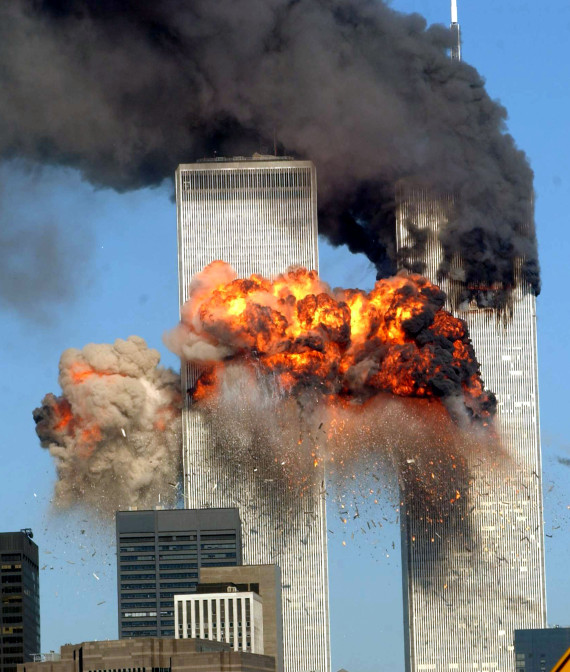Today is now what we have called Patriot Day, as a remembrance to those lost to our nation from the terrorist attack on September 11, 2001. For most of us that date, and the event, is etched upon our memories. Prior to that date, people often talked about remembering where they were and what they were doing when President John F. Kennedy was assassinated – except those of us who were too young or not yet born. We now speak of memories like that regarding the September 11th attack. All of us, except the youngest among us, remember where we were and how we heard the events of that day and all that followed.
It was a loss of innocence. These kind of things weren’t supposed to happen here. They happened in other places, but not here. Yes, there had been prior attacks. There was the bombing of the Trade Center in 1993 and the bombing in Oklahoma City in 1995. However, this was different. Those seemed to be isolated incidents. This was an orchestrated attack. A group of people actively wanted to kill us and had lived and worked among us. We lost almost 3,000 people. Our financial center appeared to be crippled. The stock market shut down. Our nation’s capital was under attack. The airlines all shut down. The skies were empty. There were no contrails in the sky.
The days that followed were troublesome still. Between the events of that day and the anthrax attacks that followed, none of us felt safe. We all knew that the world had changed. There would be many changes in the way we live and travel. However, 14 years removed, the memory becomes more distant. I read from some postings in social media today that we should “let it go.” Have we moved on? Is it something we just “get over” and “move on”?
Those posts trouble me. How do you just “let go” of an event which profoundly shaped our culture and our lives? How does it serve the memories of the victims and their families to just “let it go”? How does it serve the memories of the heroes of that day?
On that day, 2.977 people started a day like any ordinary day, only to have no other days. They went to work or boarded planes. On that day, children suddenly became fatherless and/or motherless. On that day, married people suddenly became widows and widowers. On that day, parents lost their children, families became smaller, lovers lost their partners and friends lost friends. New York City lost some of its finest first responders. The New York Fire Department was decimated while they, along with officers of the New York Police Department and the Port Authority, rose as heroes to perform their duty, losing their lives trying to save the lives of others. They did not ask to be heroes. They performed their duty. Ordinary citizens aboard a plane bound for San Francisco, who did not ask to be heroes, rose in defiance giving their lives to save many others.
As nation we have experienced devastating loss before, but this was no natural disaster. This was a purposeful attack upon us by those who opposed our values, culture and freedom. Our response was swift and certain. Is this something we can just decide to “let it go”? I suppose if you don’t care about those who experienced devastating and personal loss, you can do that. I suppose if you are not concerned about our future and the freedoms that we have, then you can do that. I suppose if you are not amazed at the stories of heroism on that day on board a plane in Pennsylvania, in the Towers or at the Pentagon, you can do that. I cannot do so.
We remember because we value relationships and empathize with those who experience loss. We remember because we know the preciousness of the freedoms we enjoy. Despite our divisions over politics and divisive issues, at the end of the day, we are all Americans. When we are attacked, we can and do come together. We remember because in the face of absolute evil, we saw people rising up to express as Abraham Lincoln said, “the better angels of our nature.” We remember the loss. We remember the fear. We remember the courage. We need to remember these things. As is oft said, he who ignores the lessons of history is doomed to repeat them. However, our memory should not merely be prompted out of fear. We must remember the stories of courage. We must honor their memory and preserve their stories to inspire future generations who did not experience this event which has so shaped us.
The words of Abraham Lincoln at Gettysburg still echo truth of the importance of our memories of tragedy and courage:
It is rather for us to be here dedicated to the great task remaining before us—that from these honored dead we take increased devotion to that cause for which they gave the last full measure of devotion—that we here highly resolve that these dead shall not have died in vain—that this nation, under God, shall have a new birth of freedom—and that government of the people, by the people, for the people, shall not perish from the earth.
This is why we remember and why we must never forget.

